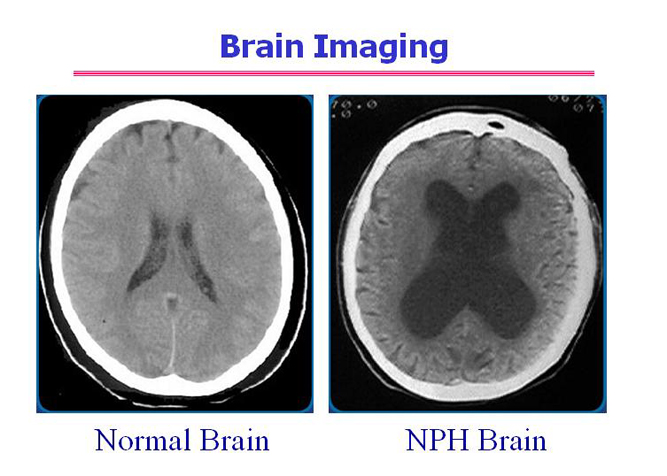NPH: The little-known neurological disorder that affects more than 1 in 200 adults over 55
 Never heard of NPH? Well, you’re not alone. NPH, or Normal Pressure Hydrocephalus, is not a widely known medical condition and is sometimes identified as “old age problems,” or as Alzheimer’s or Parkinson’s. Yet over 375,000 Americans may be living with the disorder.
Never heard of NPH? Well, you’re not alone. NPH, or Normal Pressure Hydrocephalus, is not a widely known medical condition and is sometimes identified as “old age problems,” or as Alzheimer’s or Parkinson’s. Yet over 375,000 Americans may be living with the disorder.
It’s a condition where cerebrospinal fluid (CSF) – a clear fluid that acts as a protective cushion for our brain and spinal cord – accumulates to an abnormal level within the brain, causing the symptoms of NPH.
What are the symptoms of NPH?
Typically NPH has three key symptoms. The first and most obvious symptom is difficulty walking (gait disturbance). This is often followed by confusion and memory loss (Cognitive Impairment), and trouble controlling your bladder (Urinary Incontinence). However, not all these symptoms may be present at the same time.
The most visible, and therefore the most recognizable sign of NPH is difficulty walking. NPH sufferers have a unique walk. Many suffers describe it as having their feet glued to the floor. Some may have trouble picking up their feet or climbing stairs or curbs, and difficulty turning, often resulting in unexpected falls.
Mild confusion (Cognitive Impairment) can be described as a loss of interest in daily activities, forgetfulness, difficulty dealing with routine tasks and memory loss of recent events. Importantly, not everyone will have an obvious mental impairment.
The third symptom is the need to urinate often and without warning, sometimes resulting in loss of bladder control (Urinary Incontinence) in more severe cases. However, some NPH suffers may never have a urinary problem.
Only a specialist can confirm if you have NPH

Photo source: Hydrocephalus Association
Once the symptoms of walking difficulty, together with mild confusion or urinary problems are confirmed, it is important that you have a CT/MRI scan done. At this stage it is vital that a neurologist and/or a neurosurgeon become part of the medical team. They are the best equipped to, not only interpret further test results, but also decide upon treatment options and follow-up care. Remember, a CT/MRI scan is a critical next step in evaluating your condition.
Why a CT/MRI scan?
Both Computed Tomography (CT) and Magnetic Resonance Imaging (MRI) are simple procedures that allow your doctor to clearly see what is happening to your brain. Much more advanced than an x-ray, CT and MRI scans provide your doctor with a detailed map of your brain and, with their high level sensitivity, are the best way to accurately diagnose NPH.
NPH is treatable
 The symptoms of NPH may be partially or fully reversible. Early diagnosis is the first step. Once you’re diagnosed with NPH, one treatment available is the CODMAN Programmable Shunt. A shunt is an implantable device designed to drain the excess cerebrospinal fluid away from the brain, taking the pressure off the brain. This can improve the troubling symptoms of NPH.
The symptoms of NPH may be partially or fully reversible. Early diagnosis is the first step. Once you’re diagnosed with NPH, one treatment available is the CODMAN Programmable Shunt. A shunt is an implantable device designed to drain the excess cerebrospinal fluid away from the brain, taking the pressure off the brain. This can improve the troubling symptoms of NPH.
Shunts are not for everyone. Only a specialist can decide if it is right for you. Individual results may vary. Patients receiving anticoagulants (blood thinners) or having a history of bleeding disorders should not use a shunt. Prior to shunt implantation, you should discuss any infection you may have with your doctor and have it treated.
The CODMAN Programmable Shunt gives the neurosurgeon a range of 18 different programmable pressure settings. This means the pressure settings can be programmed for each individual patient.
CODMAN, a Johnson & Johnson company, is a pioneer in neurological devices and has been manufacturing surgical devices for over 160 years.
Take the next step – get a diagnosis
If you think you, or someone you know could be suffering from NPH, we recommend you take the following steps as soon as possible:
- Review your symptoms based on the information here, and write them down.
- Make an appointment with your primary care physician or neurologist, if you’re already seeing one, to discuss NPH.
- Use the list of symptoms you wrote down as a starter with your doctor and ask for a referral to have a CT/MRI scan.
- Once you have had a CT/MRI scan make an appointment with a neurosurgeon for further investigation.
Don’t lose your life to NPH… Act today.